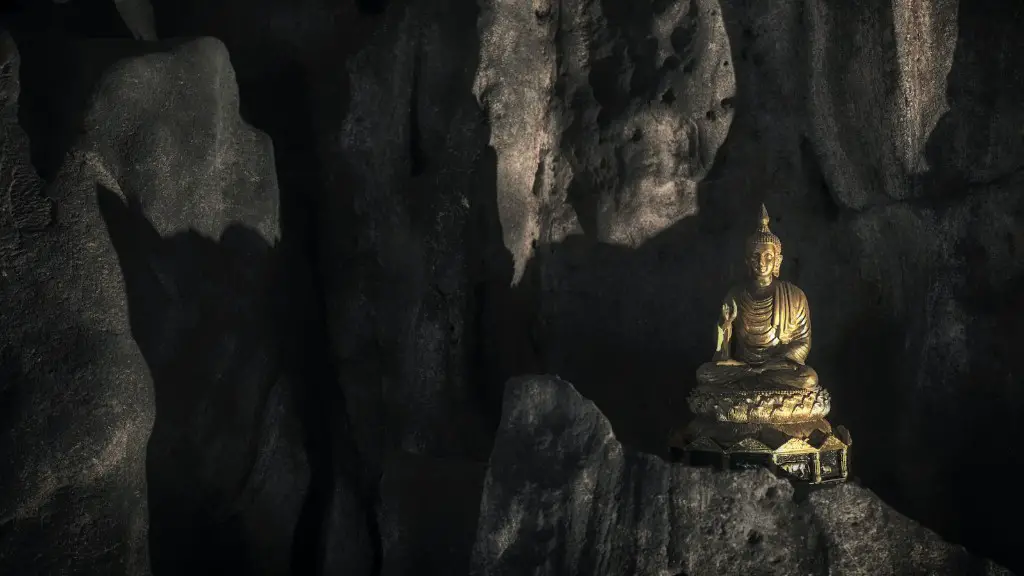Concept of Karma
Karma is a fundamental concept associated with Hinduism, and it is often seen as a way of explaining how people’s actions affect the world. In basic terms, the concept of karma suggests that people’s deeds, whether good or bad, will come back to them in some way. According to the teachings of Hinduism, the results of karma can be experienced either in this life or in a future incarnation. According to Hindu scripture, the effects of good and bad karma can affect the entire universe.
Karma is also an important tool, urging us to lead good lives and do good deeds. The result of our actions is seen as not only something that will affect us in the future, but something that can bring us joy and happiness in this life. By engaging in work or devotional worship, the individual can raise their consciousness, ultimately leading to peace, love, and understanding.
Legends and Stories of Hindu Gods
In Hinduism, the belief in God and gods is strong, as is a belief in stories and legends about them. From stories like the Ramayana, to legends about Krishna, Hindus believe that these stories impart important lessons about how to live a meaningful life. Stories and legends are seen as a way of understanding the god’s character, finding wisdom, and learning lessons.
The gods of Hindu mythology are often seen as metaphors, symbols of certain aspects of life, and embodiments of certain values. For example, Lakshmi, the goddess of wealth and prosperity, symbolizes the importance of working and taking action. By understanding the characters of these gods and how they interact, Hindus can learn more about the inner world and their own place in the world.
The Hindu Trinity
The Hindu trinity is another concept that has been central to Hinduism since ancient times. This triad is composed of Brahma, the creator; Vishnu, the preserver; and Shiva, the destroyer. This trinity is often seen as personifying the cyclical processes of life and death, and how, in an eternal cycle, change always takes place. In addition, all of the gods, including Vishnu and Shiva, are seen as manifestations of Brahman, the one, formless, and universal god.
Hinduism and the Vedas
The Vedas are the oldest scriptures of Hinduism, and they are also believed to be the source of the knowledge of the gods. They are seen as four collections of universal knowledge, containing stories, myths, as well as hymns and prayers to the gods. One of the most important ideas found in the Vedas is that of atman – the concept that each person is part of a universal spirit, and that all the gods are actually manifestations of that spirit.
Conclusion
Hinduism has a rich and deep understanding of God and gods. Hindus believe that God is present everywhere, and is one with the universe. Through legends, stories, and scripture, Hindus strive to gain a better understanding of the divine. Karma is seen as a way of understanding how our actions affect the world and our fate. And by understanding the stories of the gods, Hindus gain valuable insight into a meaningful life.
The Different Forms of God
Hinduism is known for it’s diverse pantheon of gods with various forms, aspects and roles. Gods such as Shiva and Vishnu have multiple forms that represent aspects of the divine. Hindus believe that although many gods have been given different names, they are all ultimately the same divine force. For example, Shiva is both the destroyer and the bestower of holy prolongment. Vishnu has ten different reincarnations and the avatars of Vishnu serve as the mediator between man and the divine. Futhermore, each major god is accompanied by a consort and often different forms of goddesses are associated with each god as wives, mothers and sisters.
How Hindus Worship God
Hindus pray and make offerings to different gods according to their own devotional practices. Hindus will often visit temples dedicated to certain gods and perform rituals. Altar offerings may include flowers, fruits or incense, and the worshippers will usually prostrate themselves before the images of the gods. Other forms of worship can take the form of hymns and prayers, or aesthetic rites like sacred music, dance and theatre.
Vedanta and the Quest to Realize God
Vedanta is the philosophical system associated with Hinduism and it is concerned with the ultimate goal of human life – the quest for self-realization and the experience of the divine. Self-realization is the path to ultimate realization of Brahman, the formless, infinite, one universal consciousness. Vedanta proposes that all human suffering and ignorance stem from not recognizing the unity of all life and all beings.
Living A Godly Life
Living an ethical and moral life is seen as an important practice of Hinduism. Righteousness is seen as good karma, and by making the right choices, Hindus can achieve spiritual liberation and union with the divine. This includes engaging in activities that foster self-growth, such as compassion, charity, and helping others. By leading a godly life and striving to become a better person, Hindus can seek to attain their highest potential.
Yoga: A Path to God Realisation
In Hinduism, yoga is seen as a path to directly experience the divine. Through various practices, including meditation and physical exercises, the yogi can reach a state of enlightenment and detachment from worldly desires. The ultimate goal of yoga is to attain the highest level of consciousness, and thus, experience God-realization. By deepening their inner connection and understanding, Hindus can seek to understand the true nature of the divine and their own spiritual potential.

